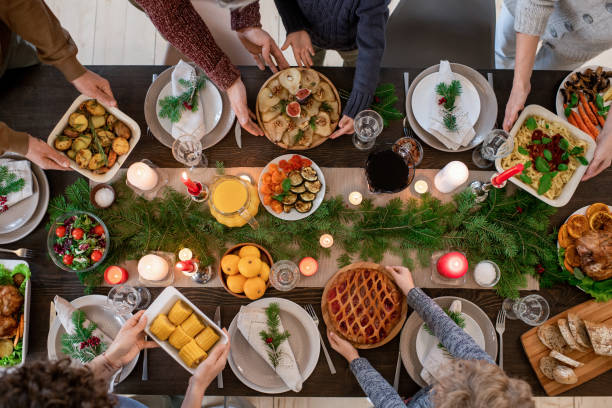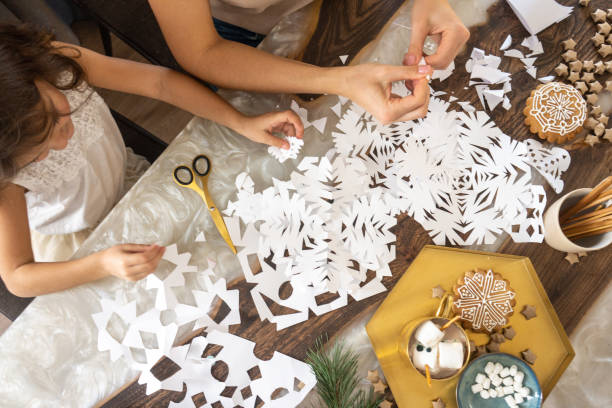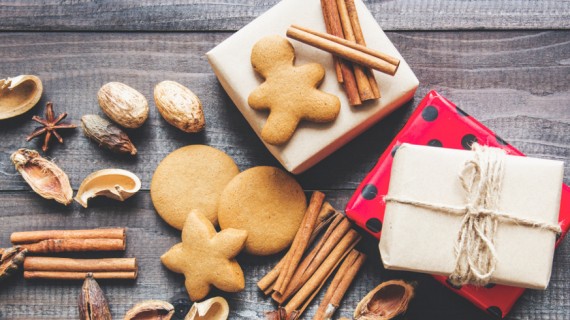Our every action and lifestyle has an impact on the Planet, and Christmas holidays are no exception. Among Christmas shopping, decorations, travel, the Christmas holidays have a huge environmental impact. Studies show that the ecological footprint of Christmas increases year by year, causing almost 5.5% of the greenhouse gas emissions that each of us produces annually. This is about 650 kilos of CO2 per person between 24 and 26 December alone. So one of the most beautiful times of the year turns into an environmental disaster, with shocking consequences for the planet.
Let’s see some data:
Research shows that Christmas is the largest annual environmental disaster in the world. In one country, like Britain, for example, people celebrate this holiday by cutting down eight million trees, collecting billions of greeting cards, and throwing away food worth £1 billion. The data says that food consumption during the Christmas holidays increases by about 80% compared to the rest of the year. But also that of transport with a consumption of over 50 kilos of CO2 per person to reach family members for parties or go on vacation. And not to be underestimated are tens of billions of decorations used in December and hundreds of thousands of tons of plastic used to wrap gifts, which are often not reused. Not to mention how much each year billions and billions are spent on unwanted or broken gifts.
But there are many small actions, which in our daily lives, we can carry out to respect the environment even in the Christmas period. Recreating the Christmas atmosphere at home is even more beautiful if done in an eco-sustainable way. Here are some tips to spend a more ecological Christmas:
Food consumption

Between lunches and Christmas dinners, with family or friends, during the holidays there is a high consumption of food, much of which is unfortunately wasted.
How can we reduce the environmental impact of the Christmas table?
- Buying food at zero kilometre: this reduces the ecological footprint due to the transport of food, as well as ensuring greater freshness and support to local farmers
- Cook moderate meals: avoid cooking super generous portions
- Buying bulk products: this avoids waste of plastic and packaging and reduces the amount of waste produced
- Cooking with leftovers: there are many delicious anti-shot recipes to recover the leftovers of the holidays and prevent them from becoming waste
- Properly differentiate: ensure that organic remains are thrown into the wet.
Transport

Many of us want to spend the Christmas holidays in another place or join our family but we can try to be more ecological in this too. How to do?
- Prefer public transport: use less polluting transport, such as trains, rather than cars;
- Take advantage of car-sharing or getting around by electric car.
Christmas decorations

We all like to set up our house with Christmas decorations but to live a more ecological Christmas it is important to reduce the decorations and make sure they are more eco-sustainable. For example:
- Reuse old decorations, from balls, to banners, without throwing them and try to have fun making homemade decorations with paper, branches, cones, fabric…
- Avoid cutting trees: rather, create one that is sustainable and orginal with upcycling.
- Reduce the light decorations as much as possible and keep them on for example only in the evening, turning them off before bedtime.
Gifts

In this period, many gifts are exchanged but to reduce the environmental impact we can choose more consciously in our gifts. For example:
- Avoid material gifts: replace them with dematerialized experiences and gifts that have less impact on the environment and create more happiness in those who receive them
- Pack gifts in an environmentally friendly way, reusing old materials creatively.
If each of us at this time of year tried to follow these little tips we could reduce the individual impact by 60%.




